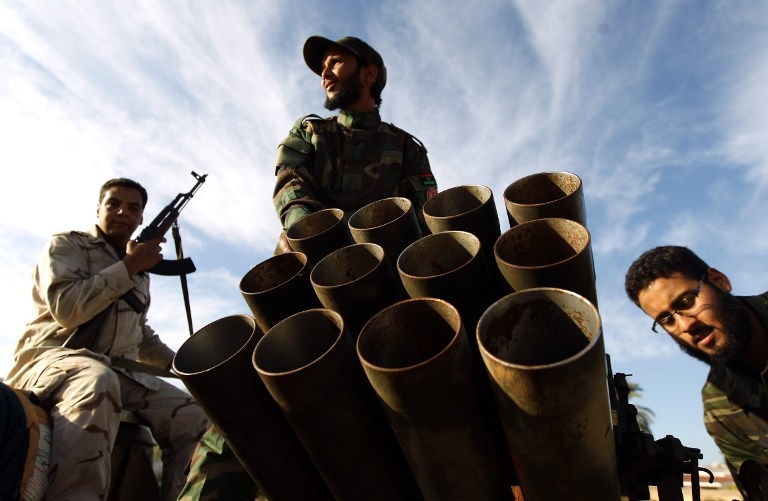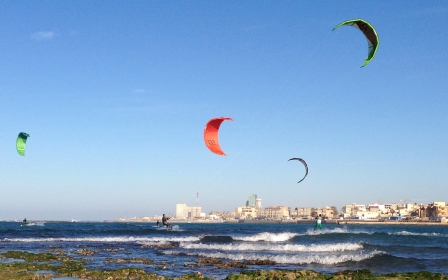Army of Tobruk-based government declares ceasefire in Libya

The army of Libya's Tobruk-based government has announced a ceasefire on Sunday, two days after an Islamist-backed militia alliance announced a truce.
"We declare a ceasefire from midnight (2200 GMT) Sunday," said the army said, stressing however that it would continue to pursue "terrorists", as UN-brokered peace talks resume in Geneva next week.
The army also said it would monitor the situation on ground "to prevent any change in front lines or transportation of weapons and ammunition," which it would consider a violation of the truce.
Soldiers "have been given the right to defend themselves if they come under fire," the statement added.
On Friday, the Libya Dawn militia alliance said it had agreed to "a ceasefire on all fronts" on condition that "the other parties respect the truce".
Libya has been wracked by conflict since the overthrow of dictator Muammar Gaddafi in a 2011 uprising, with rival governments and powerful militias battling for control of key cities and the country's vast oil riches.
The UN special envoy to Libya, Bernardino Leon, had warned at the start of the Geneva talks that they were a last-ditch effort to prevent all-out chaos.
"The participants agreed after extensive deliberation on an agenda that includes reaching a political agreement to form a consensual national unity government and the necessary security arrangements to end the fighting," a UN statement said.
They called on all the players to cease hostilities and "expressed their unequivocal commitment to a united and democratic Libya governed by the rule of law and respect for human rights".
They agreed to work towards the release of abducted people, providing and allowing humanitarian aid to reach affected regions, opening airports and securing land and maritime navigation.
The delegates will return to Geneva for a fresh round of talks next week after consultations.
The Tobruk-based government and elected parliament decamped last summer to the country's far east after Libya Dawn seized the capital Tripoli and set up its own administration.
The militia alliance, which also holds Misrata, launched a bloody offensive in December to seize control of key oil terminals, but was repelled by the army.
The broad agreement cobbled in Geneva also saw the factions pledge to work towards ensuring the free movement of people across the divided nation.
Legitimacy of state institutions
They vowed to respect the legitimacy of state institutions, work towards the peaceful transfer of power and reject violence and terrorism.
The agreement came after months of UN efforts to get the opposing sides back to the negotiating table after a single round of talks in September.
A major concern in Libya is the proliferation of Islamist militias in key areas such as Benghazi.
Those militias are led by the Ansar al-Sharia group, blacklisted by the UN for its links to al-Qaeda.
Leon had also underscored the threat of Libya becoming a hotbed of Islamist insurgency, saying it menaced North Africa, the Middle East, the Sahel and Europe, which lies on Libya's doorstep.
Stay informed with MEE's newsletters
Sign up to get the latest alerts, insights and analysis, starting with Turkey Unpacked
Middle East Eye delivers independent and unrivalled coverage and analysis of the Middle East, North Africa and beyond. To learn more about republishing this content and the associated fees, please fill out this form. More about MEE can be found here.




